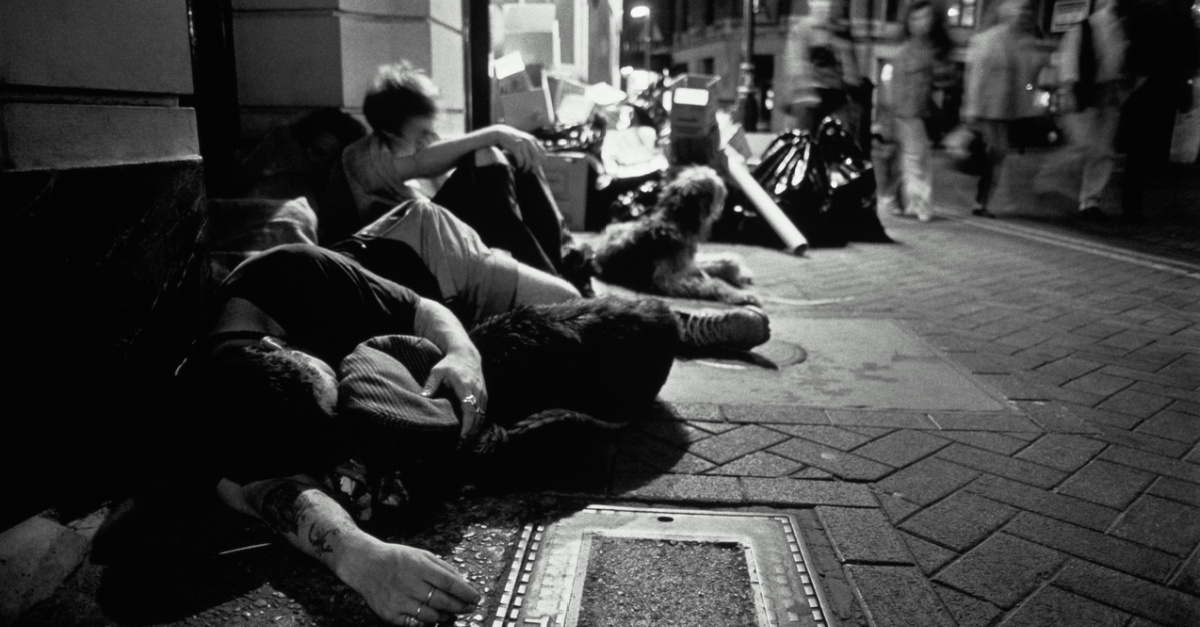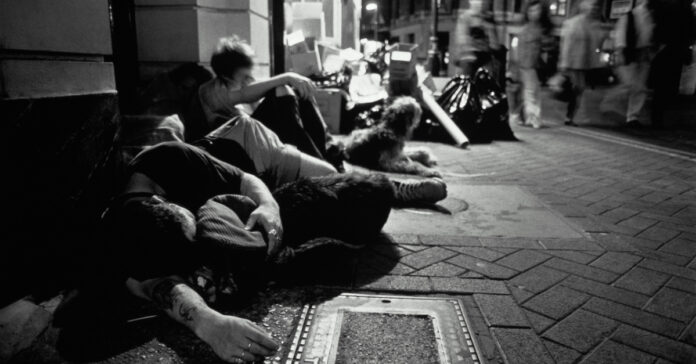[ad_1]

The concept of having a spirit of orphanage can be hard for a believer to comprehend. For most people, it’s a simple idea to grasp the concept that we are adopted by our heavenly Father. But for many of us who grew up in abusive homes, it is difficult to believe that we are even loved, let alone wanted by God.
I spent much of my adulthood not realizing that I was battling an orphan spirit. But one week during a Bible study, I suddenly saw myself as little Oliver Twist in Dickens’ classic tale, slowly starving and desperate for more in my spiritual life. I began to finally grasp how that image was holding back the blessing of me having a deeply personal father-child relationship with God.
I had no archetype for nurture. No sense of parental pride. I never felt as if my parents were “delighted” in me or had big dreams and plans for me. And I felt utterly alone, even though I lived with three other siblings. The loneliness of an orphan is particularly cruel, because when a child is lonely, he or she at least has the safety and welcome of their home and family. For me, home was where I felt the most alone. It felt like an orphanage, where I was provided with the most basic of essential needs and nothing more. And I turned that outward orphanage and rejection inward, taking on all the characteristics of an orphan in my spiritual life.
From as early as five years old, I was told by my parents that asking for anything above the very basics I needed to survive was selfish. I had brothers and a sister that my mother and stepfather loved more than me. I was only due the scraps of love, the scraps of a childhood, and I took this orphan’s attitude into my spiritual life as a result. I felt that I didn’t belong in God’s presence. I was supposed to be “seen and not heard.”
Over the course of my lifetime, the spirit of orphanage had convinced me to believe lies about who and what I was in the Kingdom of God. Lies that stole my birthright, like Esau, and made me bitter and always on the attack, like Barabbas.
As I poured my heart into writing my personal memoir last year, I learned the eternally valuable truth about who and what I really am…we really are, to our Father in Heaven.
The spiritual orphan has physical parents but is treated like an orphan. This kind of upbringing causes a person to believe many lies about themselves, and the lies affect every step of their journey with God.
Here are three of the biggest lies:
1. “I mean less to God than other believers.”
For me, this lie showed itself mostly when I tried to pray. I felt like I must surely be bothering Him. I could spend hours pouring my heart out to God for the needs of a friend or an unfamiliar name on a prayer list because I believed that God loved those people and wanted to answer my prayers for them. But me? I was convinced that God wasn’t concerned about my desires or requests, no matter how urgent.
2. “I need to apologize for any good thing that comes my way.”
I was convinced that nothing good is supposed to happen to me or for me. I learned to expect difficulty and struggle as a matter of course. I wasn’t supposed to dream, or set goals, or achieve any measure of success in life, because I was something less, something unlovable. Success and achievement were for children who were planned and wanted.
3. “God is always just a little angry with me, and He tolerates me at best.”
My father was a college athlete with dreams of a career in education. He wanted kids one day —but not yet —and certainly not with my mother. They never married, and I was a very inconvenient reminder to them both. For him, I was a momentary loss of discretion and the death of his dreams. (My father quit college and wound up doing two tours in Vietnam) For my mother, I was the son of a man she loved but who did not return her affection. She thought that having his child would win his heart. It did not, and she found herself saddled with a child she did not really want. This made her resentful and angry toward me. While I lived with her and knew nothing of my biological father until I was 21, I could sense that resentment and anger. Because I was a child and didn’t understand the situation, I came to believe it was my fault. I believed my parents could do no wrong, so I must be a bad child. For most of my life, I felt God offered me salvation only because I had messed up so badly, as we all have. He resented the sacrifice of His son on the cross for someone like me. He offered me salvation, but that was all I was getting. I was tolerated but not beloved.
In writing my memoir, “An Orphan in the House of God,” I came to understand the truth of how my Heavenly Father truly sees me, what He thinks of me, and what kind of Father He really is. Here are three of the truths I discovered:
“You and I were on His mind from the creation of the world.”
When God hung the stars in the sky during the Creation, He put one there with my name on it (Psalm 147:4). It served as a reminder of the promise He made to Abraham that he would have a child for every star he could count in the night sky. Learning that I was one of those stars was life-changing for me.
“You and I are His personal creation.”
Psalm 139:13-14 tells us we are “Fearfully and wonderfully made.” The Hebrew word for “made” here is the same as the word in Genesis when God created Adam. It speaks of an artist creating art by hand. That’s what we are. The first breath you ever took was the one He breathed into your lungs. When your tiny heart began beating in your mother’s womb, it was at His command. He has “Written you on the palms of His hands” (Isaiah 49:16). He rejoiced over you with singing and dancing the day you were born (Zephaniah 3:17).
“He wants to give you and me the very best.”
Jesus compared earthly fathers to our Heavenly Father (Luke 11:11-13). He tells us that if we, who are sinful humans, still give the best to our children, why do we think our heavenly Father would not do even more than that? He lets us know that our Father is so much more than even the best earthly father could ever be, and that He lavishes us with every good and perfect gift (James 1:17).
If you have lived your life as a spiritual orphan, I want you to know that you were wanted and planned before the world was even created. God has never lost sight of you, has never had anything but the best plans for you, and loves you as His own child. You are not an orphan. You are His beloved.
Photo Credit: ©Getty Images/Penny Tweedie
Craig Daliessio is the author of the #1 Amazon best-seller, “An Orphan in the House of God,” along with six previous books, including “A Ragamuffin’s Christmas,” “Nowhere to Lay My Head,” and “Sometimes Daddies Cry: What a Dad Really Feels about Divorce.” He has a B.S. degree from Liberty University in Religion and is an award-winning mortgage banker. For more information, visit https://craigdaliessio.com/.
[ad_2]
www.ibelieve.com







